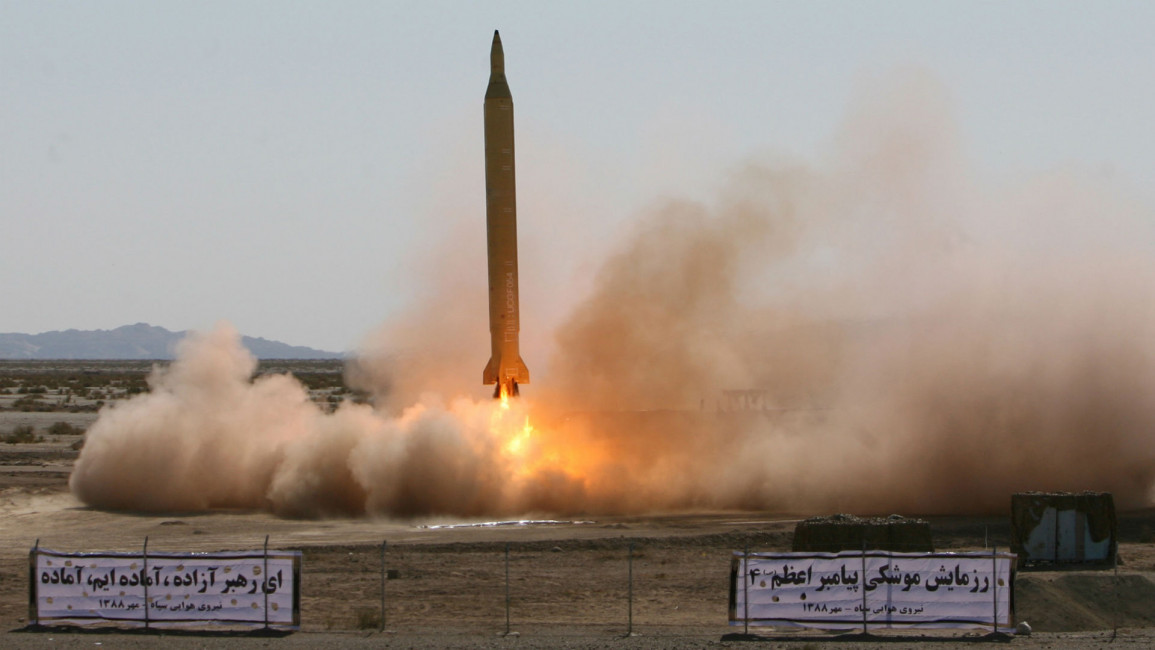UN Security Council holds talks on Iran missile test
The UN Security Council will hold urgent talks on Tuesday on Iran's test-firing of a medium-range missile, diplomats have said.
The United States requested the emergency consultations after the Israeli ambassador to the United Nations called for council action.
"In light of Iran's January 29 launch of a medium-range ballistic missile, the United States has requested urgent consultations of the Security Council," the US mission said in a statement.
The talks on Iran will follow a meeting on Syria scheduled for 10:00 am (1500 GMT).
Israeli Ambassador Danny Danon said the missile test violated UN resolutions that bar Iran from launching ballistic missiles that could have a nuclear capability.
"The international community must not bury its head in the sand in the face of this Iranian aggression," said Danon.
"The Security Council members must act immediately in response to these Iranian actions which endanger not only Israel, but the entire Middle East."
It was the first request for council consultations made by the United States since new US Ambassador Nikki Haley took office.
US President Donald Trump has promised to strengthen ties with Israel and has sharply criticised the Iran nuclear deal that led to a lifting of international sanctions against Tehran.
But Iran's Foreign Minister Mohammad Javad Zarif warned the United States against "creating new tensions" with Tehran over ballistic missiles tests.
"We hope that Iran's defence programme is not used by the new US administration... as a pretext to create new tensions," Zarif said in a televised press conference on Tuesday with visiting French counterpart Jean-Marc Ayrault.
Russia also commented saying that the test does not contravene a United Nations resolution on Tehran's nuclear programme.
"Such actions, if they took place, do not breach the resolution," Russian deputy foreign minister Sergei Ryabkov told Interfax news agency, saying demands for UN talks were aimed at "heating up the situation".
Trump is due to meet with Israeli Prime Minister Binyamin Netanyahu on February 15.
A Security Council resolution adopted a few days after the 2015 nuclear agreement bars Iran from developing missiles "designed to carry nuclear warheads."
Iran has said its missiles would never carry a nuclear warhead as it has no plans to develop atomic weapons, but military officials have insisted on expanding the country's missile programme.
Britain, France and the United States have sought council action over Iranian missiles launches last year, but Russia and China opposed discussion of possible sanctions that they argued would jeopardise the hard-fought nuclear deal.
The deal reached with Britain, China, France, Germany, Russia and the United States imposed curbs on Iran's nuclear programme in return for lifting sanctions.


![Minnesota Tim Walz is working to court Muslim voters. [Getty]](/sites/default/files/styles/image_684x385/public/2169747529.jpeg?h=a5f2f23a&itok=b63Wif2V)




![Israeli officials are considering exiling Yahya Sinwar to Sudan as part of a deal to end the war [Getty]](/sites/default/files/styles/image_330x185/public/1251837582.jpeg?h=127ba027&itok=ujxSRy_f)
![Debris near Rafic Hariri International Airport [Getty]](/sites/default/files/styles/image_330x185/public/2176162423.jpeg?h=a5f2f23a&itok=MCSK9mkM)
![An Israeli air strike on Jabalia killed teenage journalist Hassan Hamad [Screengrab/X]](/sites/default/files/styles/image_330x185/public/2024-10/hassan%20hamad1.jpg?h=c12e0b96&itok=Rd_dyCVp)